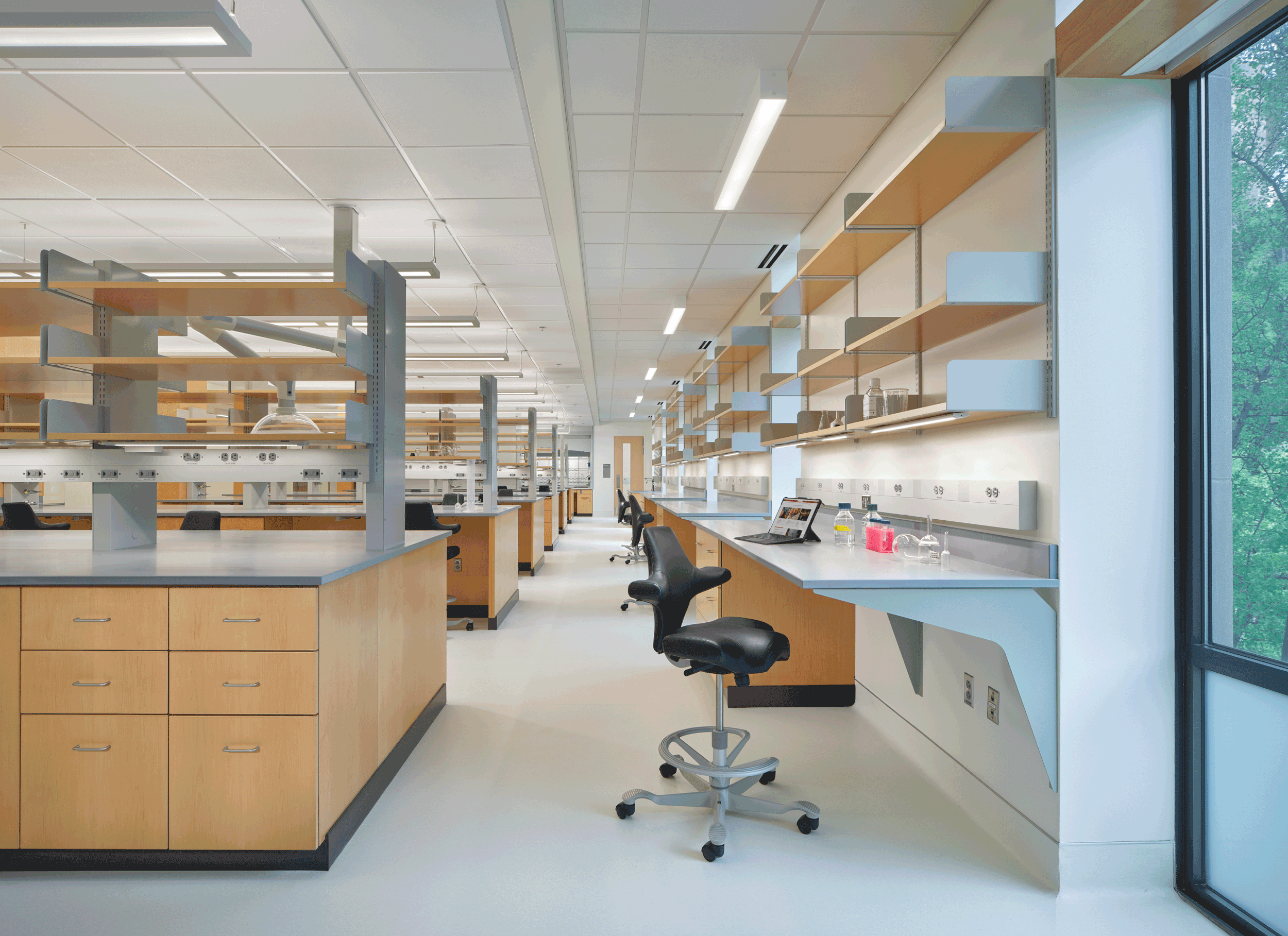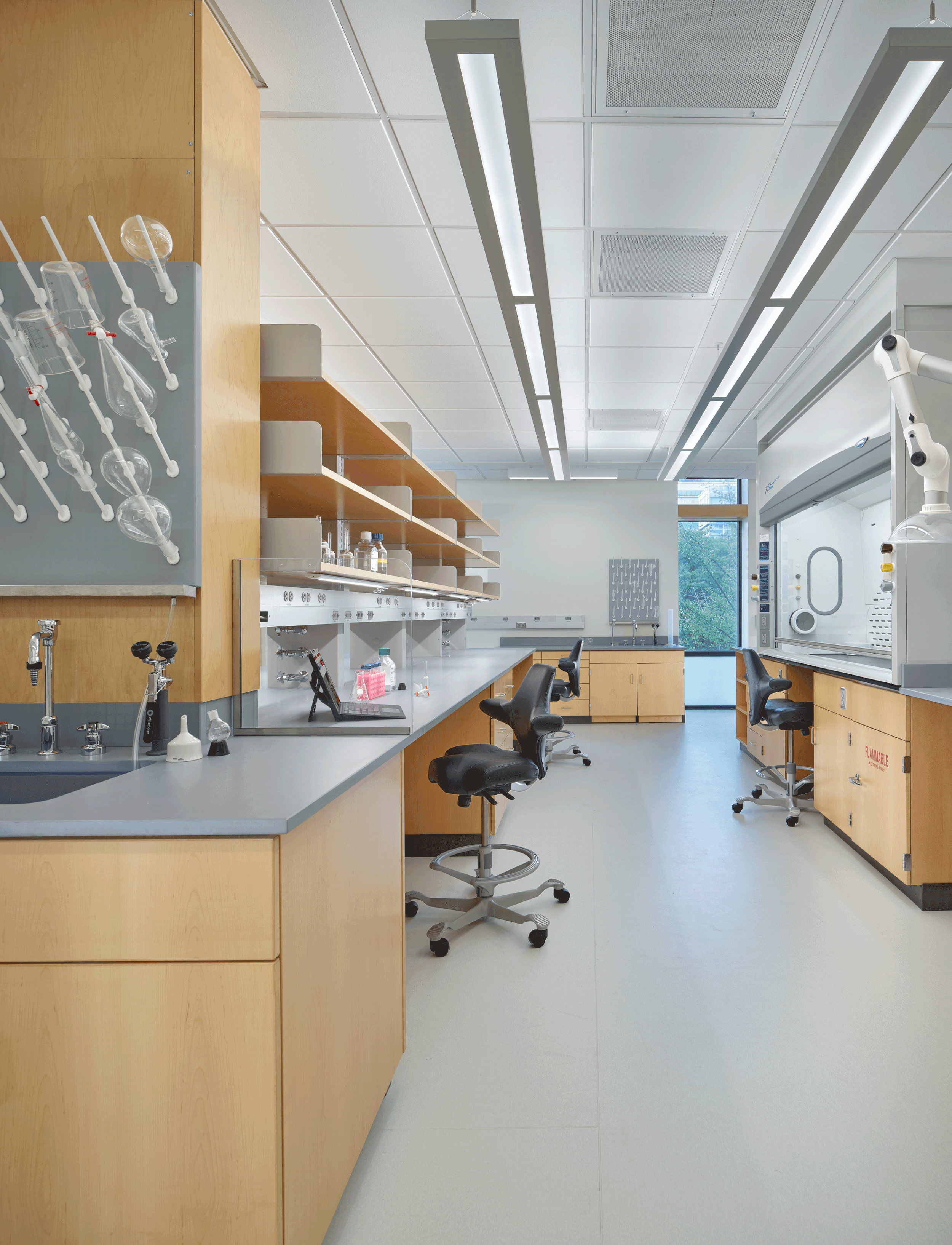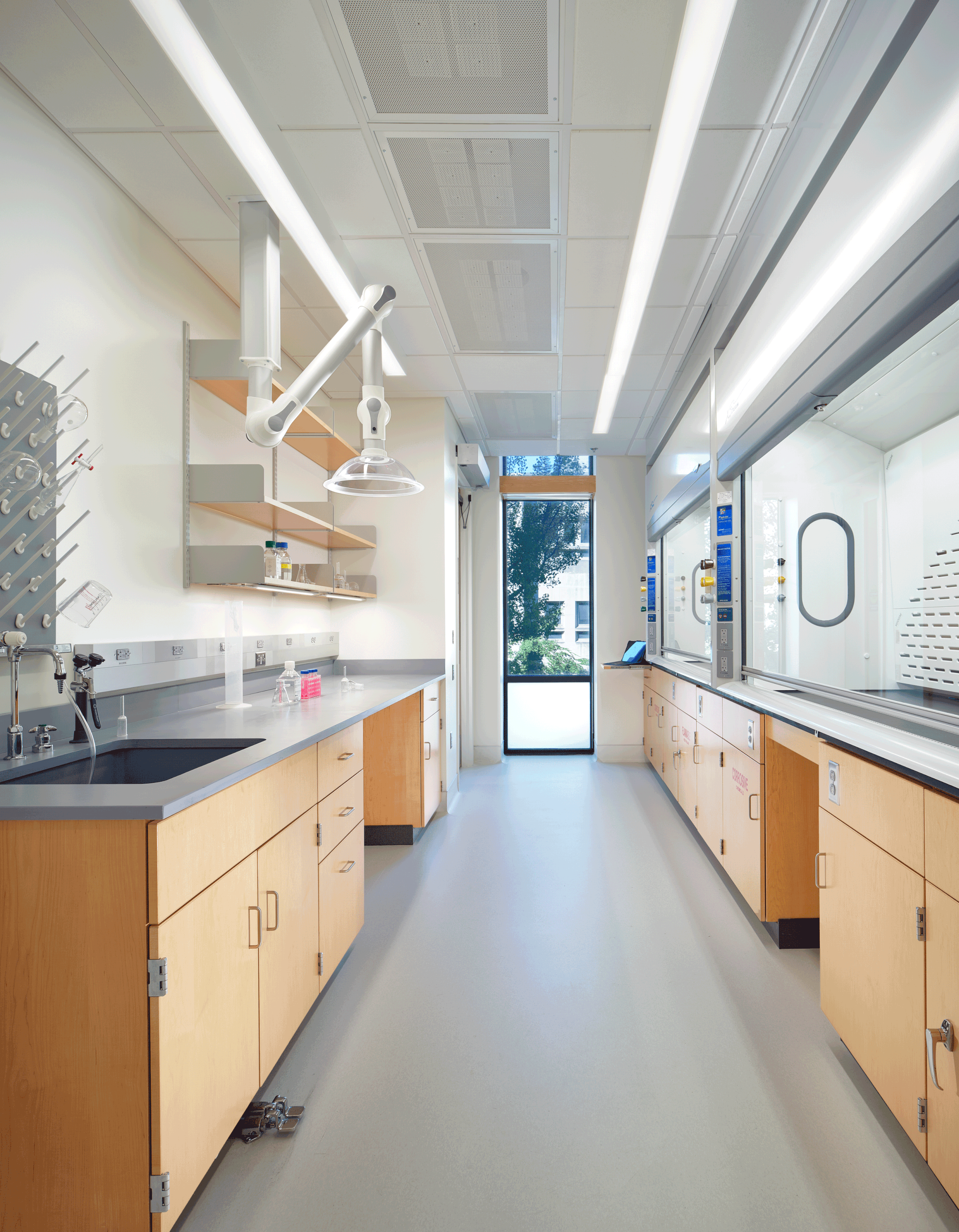University of Chicago | Jack Szostak Lab
6,300 sf | CHICAGO IL
Nobel Laureate Jack Szostak joined the University of Chicago Department of Chemistry in September 2022. As University Professor, Szostak leads the University’s new interdisciplinary Origins of Life Initiative, which aims to understand the earliest forms and cycles of life on Earth and elsewhere.
The project is for the creation of a new Bio-Chemistry laboratory at the University of Chicago to be constructed within the Searle Chemistry Laboratory for Dr. Jack Szostak. Professor Szostak’s research focus is on the Origins of Life and attempting to recapitulate the steps that led to the self-assembly of the first living cells. In other words, his group is interested in how the chemistry of the early Earth gave rise to the beginnings of biology and early evolution. Their works attempt to create laboratory synthesis of simple living systems in the hopes of discovering plausible pathways for the transition from chemical evolution to Darwinian evolution. His group’s findings have helped scientists to map the location of genes in mammals and to develop techniques for manipulating genes. Their work has been instrumental to the Human Genome Project. He was awarded the 2009 Nobel Prize for Physiology or Medicine, along with Elizabeth Blackburn and Carol W. Greider, for the discovery of how chromosomes are protected by telomeres.

Scientists agree on the most important qualification an architect must have to deliver the lab you want: EXPERIENCE.
Designing laboratories today means creating more complex, collaborative, multi-use and industry-specific spaces than ever before. Whether for private industry or academic institutions, specialty lab design continues to evolve over time.





